 Browse by PRODUCT LINES
Browse by PRODUCT LINES
 All product lines
All product lines
 Search products
Search products
 In the spotlight
In the spotlight

An Environmental Product Declaration is a comprehensive report, prepared according to international standards (such as ISO 14025 and EN 15804), that documents the effects that a product has on the environment throughout its entire life cycle, by measuring these effects according to standardized Life Cycle Assessment (LCA) methods.
An analysis of the life cycle of a product, therefore, is an evaluation of the environmental impact of the product during all the various phases of its life: From extraction of the raw materials that make up the formula, to their transport to the production plant, to the production cycle, to its packaging, to waste materials, to transporting finished product to the distributor or end user, to its final disposal.
The manufacturing process can have numerous effects on the environment and contribute to our carbon footprint: From the most widely known effect of global warming caused by greenhouse gases (global warming potential), to effects such as eutrophication (anomalous growth of aquatic organisms, such as algae, due to a decrease in the density of aquatic fauna), the reduction in the ozone layer, the transformation of pollutants into acidic substances (which then causes acid rain), a depletion of natural resources, and many more effects.
In the construction sector, EPDs help to convey a product’s impact on the environment. Certification bodies and protocols for buildings, such as LEED, Living Building Challenge and Green Globes, have implemented criteria for sustainability and impose specific requirements for construction based on the LCA method. Also, architects and “green” public buyers (such as Green Public Procurement [GPP], which is now mandatory in such EU countries as Italy) require products that comply with international sustainability standards.
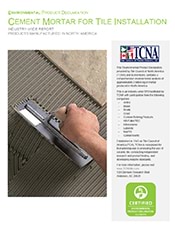
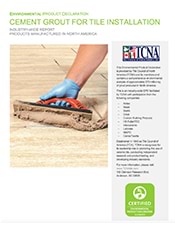
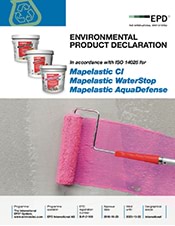
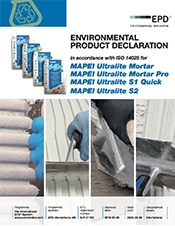
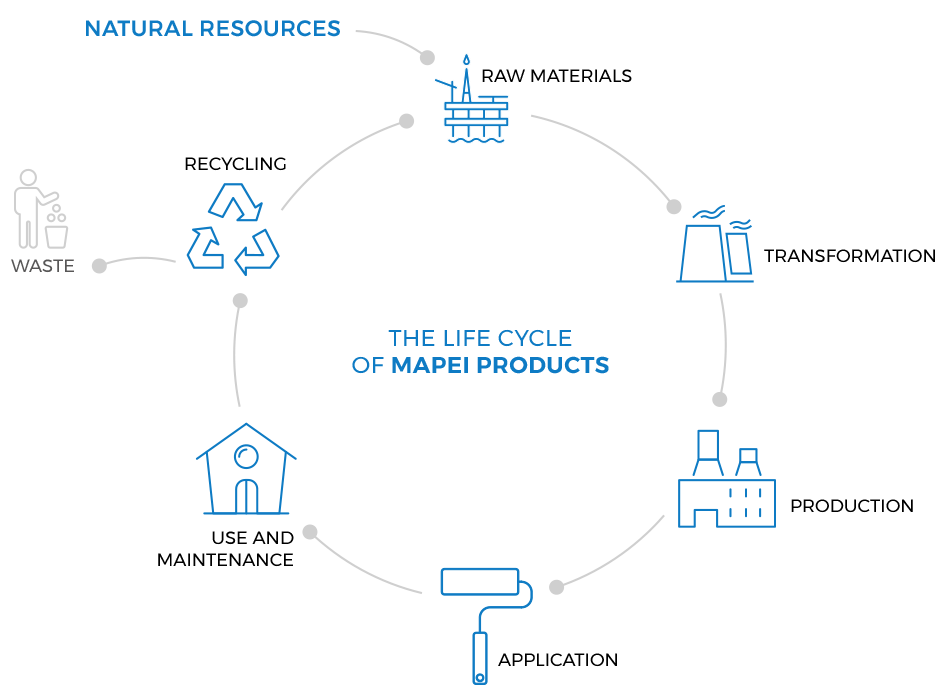
There are three different types of EPDs available for various stages of development.
These are for products with third-party certification (Type III), including external verification, in which the manufacturer is explicitly recognized as a participant by the program operator.
Note: In 2014, Tile Council of North America (TCNA) released industry-wide EPDs for North America in three categories – Ceramic Tile, Cement Grout for Tile Installation, and Cement Mortar for Tile Installation. These EPDs address everything from sourcing and extraction of raw materials to end-of-life options. MAPEI participates in the EPDs for Cement Grout for Tile Installation and for Mortar for Tile Installation.
These are for products with third-party certification (Type III), including external verification, in which the manufacturer is explicitly recognized as the participant by the program operator.
Note: MAPEI has gone beyond TCNA’s industry-wide EPD to publish Product-Specific Type III EPDs, which can further contribute to LEED credits. In 2016, MAPEI S.p.A. became EPD Process Certified, meaning that our internal processes to produce EPDs on a large scale have been third-party-verified by the International EPD System.
MAPEI provides a wide selection of both industry-wide and Product-Specific Type III EPDs, which can be requested through MAPEI’s Sustainability Team.

Technical Services at 1-800-992-6273
Customer Service at 1-800-426-2734 (1-800-42-MAPEI)